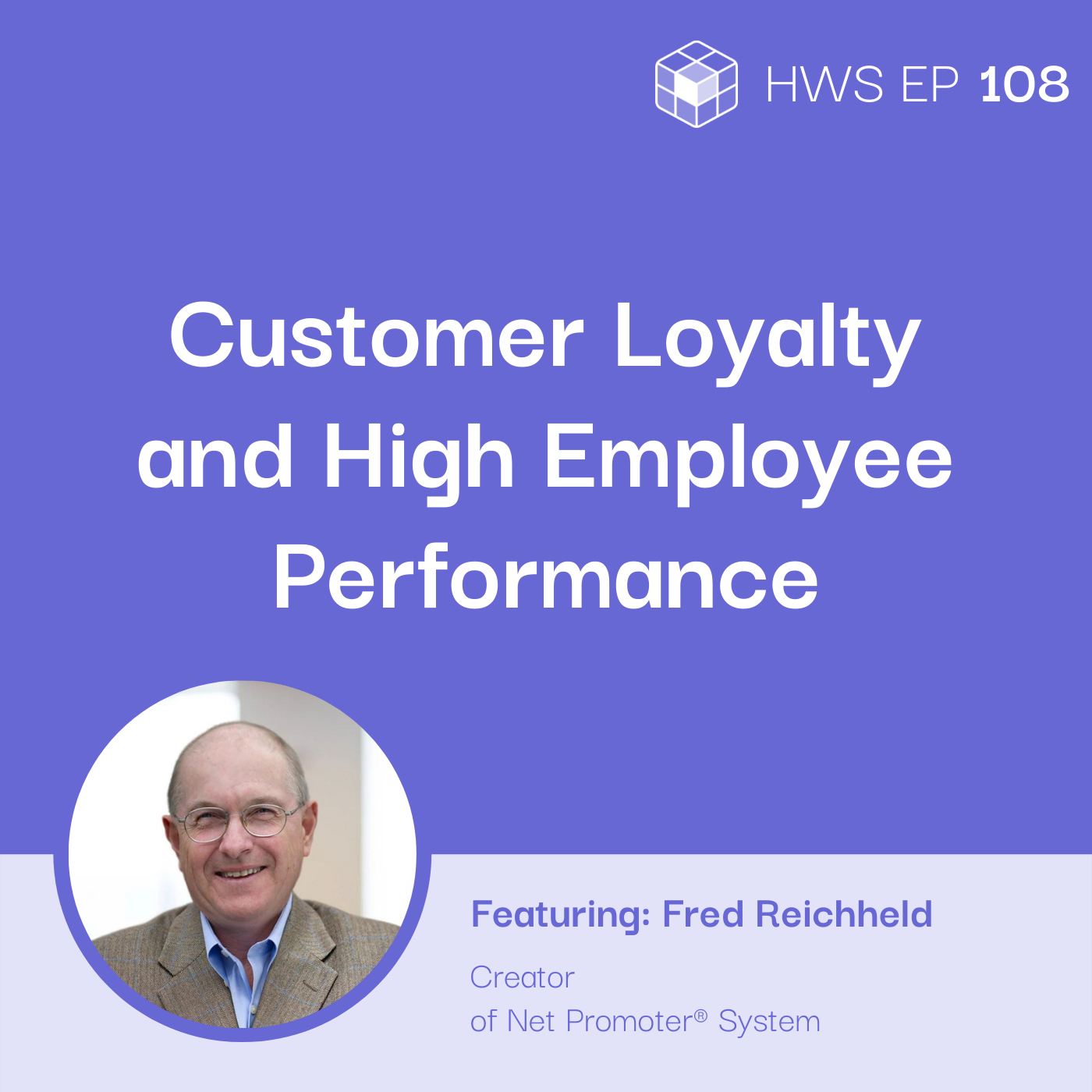Listen on:
Table of Contents:
Problem: How to earn customer loyalty and maintain high employee performance?
A company’s success depends heavily on loyal customers and high-performing employees. Retaining customers is less expensive than acquiring new ones, and they generate more profit through repeat purchases and referrals. According to Hubspot, it costs five times more to acquire new buyers than it does to retain current customers. And existing customers are 50% more likely to try new products, as well as spend 31% more than new customers.
In order to build stronger relationships with their client base, businesses use the Net Promoter Score to measure the quality of their transactions with customers. However, when they associate the NPS to compensation, employees start to focus more on the score rather than improving their work. NPS loses its impact on making business owners aware of what they need to improve in their services. How can companies win customer loyalty while keeping employees performing well?
Over two-thirds of the Fortune 1000 now use Net Promoter. And I think it’s probably approaching small and medium businesses and entrepreneurs, which is wonderful. The negative is so many people are misusing it and even abusing it that I wrote the book to help get the business movement back on track. We made it open source at the beginning so that people could adopt and experiment and innovate. And that has driven adoption, and the best practices are extraordinary and never could have been imagined.”
Create a customer-centric culture that drives loyalty and employee performance
Fred Reichheld created a metric Net Promoter Score which measures how well organizations generate relationships worthy of loyalty. NPS was designed to encourage excellence within the company and deliver customer satisfaction. When customers are satisfied, they come back for more and bring their friends. Taking it a step further, Fred suggests a winning strategy for increased revenue: loving your customers.
Step # 1: Prioritize Customer Feedback
Customer feedback is important to identify areas for improvement and gain a better understanding of your market. Businesses who invest resources and effort in making customer service hotlines accessible or creating open channels for evaluation earn their customer’s respect. Asking customers, “How can we get better?” In their own voice is a direct and simple way of market research. Customers can see that you care for them more if you acknowledge shortcomings rather than attempting to conceal them. Training employees to look at feedback objectively and make necessary changes earns them a higher Net Promoter Score.
Many people have gone down the path of linking Net Promoter Score, a survey-based score to frontline compensation, and they use it for accountability, which seems fine, but it’s really flawed because the instant you do this. It’s just a matter of time until your frontline employees start seeing this as it’s all about the score, and they stopped caring as much about learning from the feedback about how to better serve customers and innovate ways to solve customer problems.
Step # 2: Base Your Performance on Improved Lives Instead of Profit
Profit is what keeps a business in the game, but the number of lives it impacts is what keeps it alive. With increasing sophistication, consumers are voting with their wallets and choosing goods and services from companies that do good outside their business. Revenue follows when you realize that being a business owner is a unique opportunity to contribute to a better society.
Net promoter, I almost called it Net Lives Enriched originally because when you touch your life, you either enrich it or diminish it. And I think good people want to make lives better. So this net lives enriched got to the core.”
Step # 3: Establish a Safe Space for Employees’ Constructive Criticism
Allow team members to give transparent and constructive feedback. Employees are directly involved with the daily business operations, and the leadership can draw insights on how to improve the company from their honest observations. Making employees feel that the comments and suggestions they offer will not be used against them helps make them more genuine.
You won’t get an honest answer between a boss and a support. So you’ve got to give a little distance and anonymity. It’s very threatening when someone gets feedback. Constructive feedback. And so you’ve got to give them some space to process it and know they’re not in trouble and think about it.”
Fred Reichheld Recommends These Resources
- Read Fred’s new book: WINNING ON PURPOSE: The Unbeatable Strategy of Loving Customers
- Creating value for customers is the foundation of every successful business system, as discussed in his book The Loyalty Effect: The Hidden Force Behind Growth, Profits, and Lasting Value
- Know how loyalty provides the acid test for leadership in today’s volatile business environment in Loyalty Rules! How Today’s Leaders Build Lasting Relationships
- Read vivid stories from leading-edge organizations in The Ultimate Question: Driving Good Profits and True Growth
This interview is part of the How We Solve podcast. To hear more from industry experts who are solving everyday business problems, check us out on Spotify, Apple Podcasts, and on our website.
About the guest

Fred Reichheld
This episode features Fred Reichheld, founder of Bain & Company’s loyalty practice, which helps companies achieve sustainable results through improved customer and employee loyalty. He created the Net Promoter System℠ (NPS®) of management, which has been adopted by hundreds of leading companies. Fred explains how NPS helps companies become customer-centric, unleashing profitable growth by systematically converting more customers into promoters and fewer into detractors. His work in the area of customer and employee retention has quantified the link between loyalty and profits.
How people can people reach Fred:
Official Website: Bain & Company
Twitter: @fredreichheld
LinkedIn: Fred Reichheld
Listen on:
